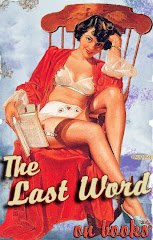"Worse than the ordinary miserable childhood is the miserable Irish childhood, worse yet is the miserable Irish Catholic childhood." And that right there pretty much sucked me in to the autobiography by Frank McCourt. See, my dad was born in 1935 in Boston, MA to a very Irish Catholic family. A lot of what I read in this book, even though it mostly took place in Ireland, it resonated with stories my dad had told me. In fact, after finishing this book, I insisted my father read it.
 Frank McCourt pretty much recounts his childhood growing up in poverty. First in Brooklyn, but unable to find work, his father decides they should all go back to Limerick, Ireland. Except Frank’s father was a drunk who couldn’t hold a job. And when he did, he used any pay to go get a few pints instead of buy food for the family. Though this poverty didn’t stop him from repeatedly knocking up Angela, his wife.
Frank McCourt pretty much recounts his childhood growing up in poverty. First in Brooklyn, but unable to find work, his father decides they should all go back to Limerick, Ireland. Except Frank’s father was a drunk who couldn’t hold a job. And when he did, he used any pay to go get a few pints instead of buy food for the family. Though this poverty didn’t stop him from repeatedly knocking up Angela, his wife.
Angela was on the dole (welfare) and even that was measly and didn’t cover much. And her “extra” money went to buying cigarettes.
McCourt recounts his life with supreme openness, to the point of peeping in on a friend’s sister while she changed clothes and him and his pals masturbating to the view.
The McCourt family, which consisted of Frank, his 4 brothers, and 1 sister had to move from place to place due to inability to pay the rent, and ended up living in a place that flooded every winter so they had to live on the 2nd floor, and it also happened to be at the end of the street where everyone else dumped their sewage.
The priests who taught at the public school were appalled by the state of Frank and his lack of shoes and would constantly focus on sin rather than the three R’s.
The whole thing was dismal, including the deaths of his sister and two brothers due to lack of healthcare and being underfed with weak immune systems.
There are some very depressing scenes in this novel, including one where Frank’s father is in the pub resting his pint on the tiny coffin of his dead son.
Angela tries to keep the family going by getting help from relatives, even prostituting herself to a neighbor man in the hopes of getting food or money.
 McCourt really did just lay it all out there; the good and the very bad.
McCourt really did just lay it all out there; the good and the very bad.
Throughout all this though is humor. I laughed aloud a few times, even during all the overwhelming tragedy.
Eventually the father leaves and goes to England to find a job, while the family remains behind in Ireland. Everyone is so proud of him, but once again he let everyone down and drank any paycheck away. So the remaining children, Frank and his brothers, take to stealing food or finding coal in the streets to sell. During one of these forays the boys see their mother standing in line at the St. Vincent DePaul society and apparently that’s even worse than being on the dole. It’s about as low as anyone can go, begging for food or shoes and being seen doing it means you’re about to be the gossip subject of the neighborhood.
McCourt recounts his childhood and adolescence with humor and such detail to make you feel as if you were experiencing it all right along with him. The man has a gift for storytelling. Something he inherited from his father.
Frank continues his story into his late teens, to when he decides to return the states and join the military. I actually didn’t want the book to end. So I got the sequel, ‘Tis. Which ended up being a great disappointment.
But along the way, Angela’s Ashes, is filled with torment and hilarity. Odd combo, I know.
Apparently it’s being assigned in schools for history, but I read this because I wanted to. I give this one the green light to read as well.
There are bits of monotony and the some of the reminiscing can be repetitive, and much of the time I just shook my head in amazement that any of this could occur and live through it. It’s amazing what humans will adapt to when necessary.
There’s an interesting bit about a girl he has a thing for and he wants to have sex with, but of course that’s a sin, but maybe he can get her to do it anyway. When they do the deed he soon finds out she’s dying, and that brings up a bunch of Catholic guilt about sex causing death and should he confess? And it’s little stories like that had me giggling in their absurdity.
There is some retelling that I’m a bit suspicious of. I don’t know anyone who can recollect with such perfect clarity, events that occurred when they were 3 or 5. Maybe Frank McCourt has an above average memory or he had some help from old neighbors or even family.
The ending of this novel was quite abrupt in my estimation. On boat to the states, meets girls, go to bar, then gets laid. Woot! All very slam bam the end. Wait, what? Is that it? Though that might how one gets sucked into a sequel.

No comments:
Post a Comment